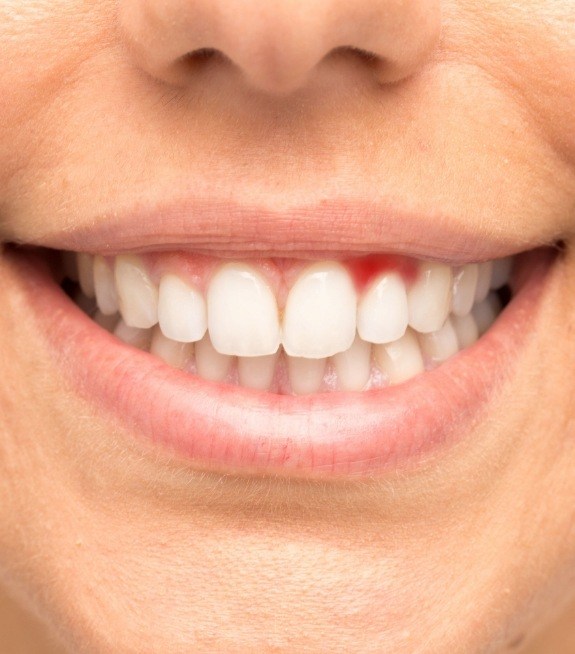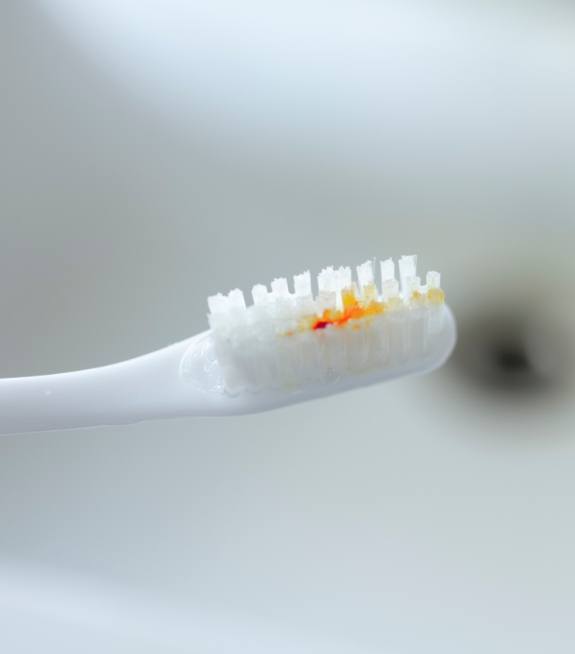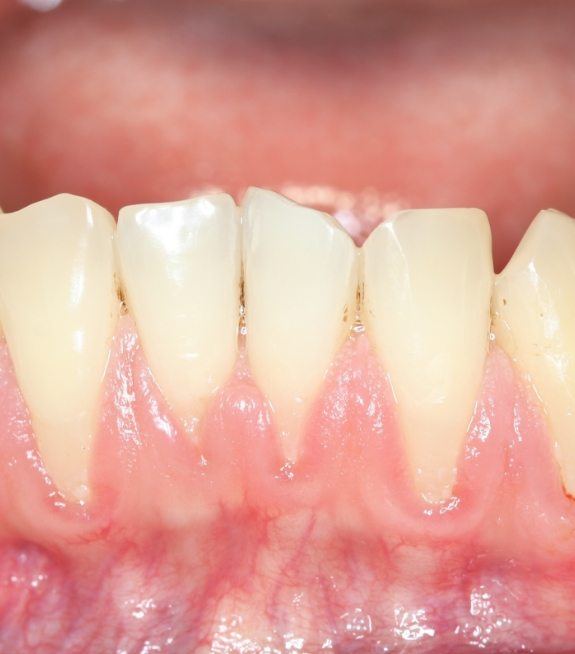What Is Gum Disease Corpus Christi
The Impact of Infected Gums
Gum disease is also known as periodontal disease. (“Periodontal” means “around the tooth.”) It’s an infection that affects both the gums and the bone tissue holding the teeth in place. Nearly half of all U.S. adults have gum disease in some form, but most of them are unaware of it because the condition often develops without pain or other noticeable symptoms. If gum disease is allowed to reach its advanced stages, it could lead to the loss of multiple teeth.
Unfortunately, the negative impact of gum disease is not limited to just the mouth. Studies show that it is linked to an increased risk of heart disease, diabetes, stroke, and several other medical problems. As such, maintaining good oral health and keeping gum disease in check are essential for maintaining a healthy body. Keep reading to learn more about what gum disease is from our Corpus Christi periodontist.
Why Choose South Texas Periodontics & Implants for Periodontal Therapy?
- Board-Certified Periodontist
- Modern Techniques and Technology
- Open Five Days a Week
What Makes Gum Disease Unique

Gum disease is an ongoing infection, which is quite different from a regular infection that you might suffer after a bad scrape. With a regular infection, you may suffer some inflammation for a few days, but it will eventually go away once your immune system gets rid of all the harmful bacteria and gives the body a chance to heal.
Ongoing infections, by contrast, only grow worse and worse over time. The body never gets rid of all the bacteria, so the inflammation doesn’t go away and the infection becomes more severe. As such, you cannot expect gum disease to get better on its own; the problem needs to be addressed before irreversible harm is done.
How Gum Disease Can Get Worse

If you have gum disease, your body’s resistance to periodontal bacteria will be lower than normal. As a result, the infection will grow in “bursts” of activity, with each burst leading to further damage. A burst of gum disease activity could be caused by various factors, including:
- Poor oral hygiene
- Dental plaque
- Smoking
- Genetic factors
- Stress or tension
- Diet
- Age
- Illness
Don’t Wait for Gum Disease Treatment

You should call our periodontal office right away if you think you might have gum disease; otherwise, you risk too much of your bone tissue being damaged and permanent teeth being lost for good. At your appointment, we will consider the available treatment options and narrow down which ones are the best choice for restoring your oral health.
Symptoms of Gum Disease

Gum disease is often called a “silent killer” because there usually isn’t any pain until the later stages. That said, some symptoms can warn you of an infection of the gums. These include:
- Red or swollen gums
- Bleeding when brushing (pink toothbrush) or at other times
- Aching, itchy, sore, or tender gums
- Receding gums (teeth beginning to look longer)
- Pus between your teeth and gums when you press down
- Bad breath
- Any change in the way your teeth fit together when you bite
- Any change in the fit of partial dentures
- Loose, separating, or protruding teeth
- Spaces between teeth
Not every patient will experience all of these symptoms (especially if gum disease is still in its early stages). Nevertheless, any of the above warning signs should warrant a call to our periodontal office.
Remember that even if your gums look and feel normal, there can still be pockets of periodontal infection where you can’t see them. It’s always best to have a periodontist examine your mouth if you’re not sure whether you have gum disease.
What Is a Periodontist?

Periodontics is one of the eight dental specialties that are officially recognized by the American Dental Association. Periodontists specialize in preventing, diagnosing, and treating gum disease in its various forms. In many cases, they have also been trained to surgically place dental implants. To become a periodontist, one needs to undergo additional years of education after dental school.
Why Visit a Periodontist?

Periodontists have specialized training in treating gum disease and other issues that affect the tissues supporting the teeth. Like general dentists, periodontists emphasize a preventive approach. They aim to identify gum disease as soon as possible and treat it before it reaches the point of putting your teeth at risk.
